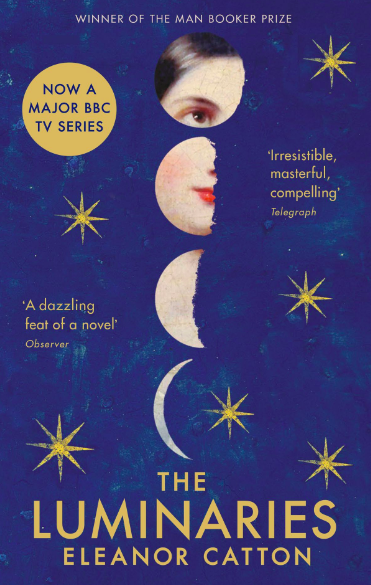As the year draws to a close we asked members of the GWPF’s Academic Advisory Council to name the best books they’ve read this year, and briefly to explain their choices. Their answers appear below.
Prof William Happer
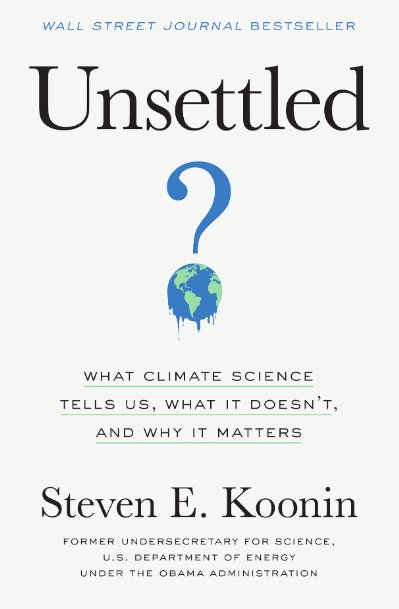
The best book I have read this year is Steve Koonin’s Unsettled: what climate science tells us, what it doesn’t and why it matters. Koonin leads the reader through many myths about climate change that have no scientific support, often not even from the IPCC. Readers should pay particular attention to this book, since Koonin was Undersecretary of Energy for Science in the first Obama administration. He can hardly be dismissed as a knuckle-dragging flat-earther, although the climate-alarm establishment has tried to do just that. In fact, Koonin is a distinguished nuclear physicist and he served for many years as Provost of the California Institute of Technology, with its traditions of uncompromising scientific excellence.
Matt Ridley
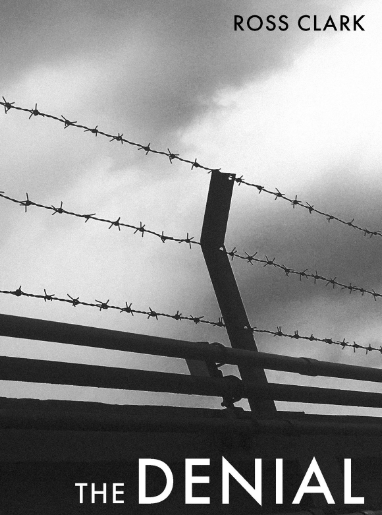
I would choose Ross Clark’s superb novel The Denial: A satirical novel of climate change, describing a dystopian (near?) future in which power cuts are frequent and only a small elite of climate influencers are excused the rationing of energy. A retired meteorologist is unwise enough to say publicly that he thinks a recent storm was not caused by climate change, and he finds himself charged as a criminal for saying so.
Prof Gautam Kalghatgi
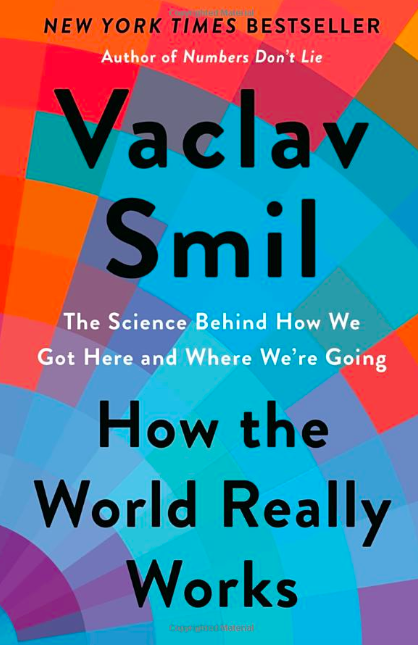
The best book for me is Vaclav Smil’s How the world really works. Everyone interested in energy, materials, food production … really should read this book. It is full of an incredible amount of information- some of it very surprising, particularly in the extensive notes and references. The other book is Steven Koonin’s Unsettled. It is a superb introduction to, as the subtitle of the book says, what climate science tells us, what it doesn’t and why it matters.
Prof Samuel Furfari
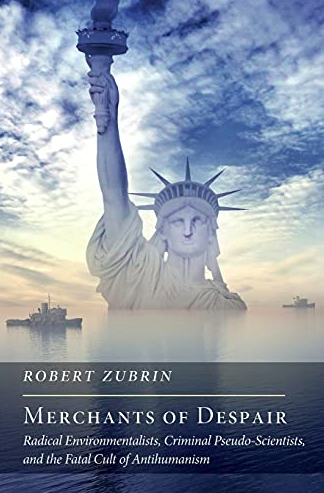
My favourite book of the year is not new, it dates from 2013: Robert Zubrin’s Merchants of Despair. He traces the genealogy of environmentalism back to Malthusianism, the fear of all fears. He gives an impressive list of references so that one must join him in his thesis of the anti-humanism of environmentalists and their pseudo-scientific beliefs. The vast majority of people are not able to understand our scientific arguments, but they are able to understand Malthusianism.
Prof Peter Ridd
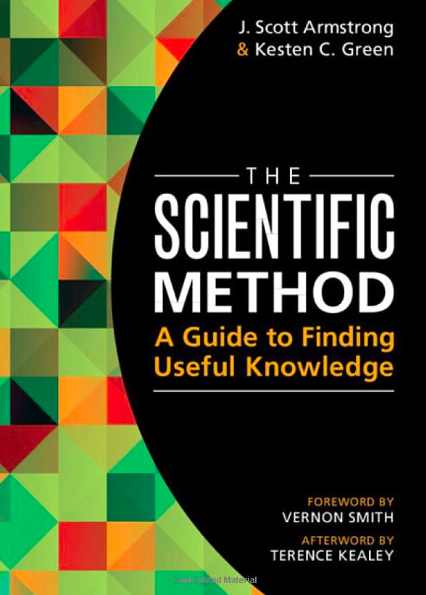
If you are interested in a slightly different book, then perhaps this one is for you: The Scientific Method by J. Scott Armstrong and Kesten Green (Cambridge University Press 2022). Most people’s belief in catastrophic global warming predictions is determined by their trust in scientific institutions. Most people have a naïve trust that the institutions are always applying the highest principles of the scientific method – gathering evidence and applying logic within a well-defined quality assurance system. However, there is now unequivocal evidence that a large fraction, perhaps half, of the peer-reviewed scientific literature has major flaws, and the public’s trust in the institutions of science has been betrayed. This is called the Replication Crisis and is well accepted by many major scientific institutions. The public believe that peer review is a major effort where perhaps a dozen scientists check a scientific report, redo experiments and calculations, for weeks. However, in most cases, peer review is little more than a quick read of the report, that takes a few hours. And because peer review means that only work that is approved by a scientist’s peers can get published, there is a huge risk of groupthink taking over a scientific community. The book by Armstrong and Green tackles many of the problems of science quality assurance head on. It is probably a book that is more interesting for a specialist scientist intent on improving quality systems than for the general public, but a very important contribution. The authors identify eight essential criteria for the practice of science and provides checklists to help avoid obvious problems. Many of these methods are standard practice in industry. This is a must-read for science administrators.
Sir Alan Rudge FRS
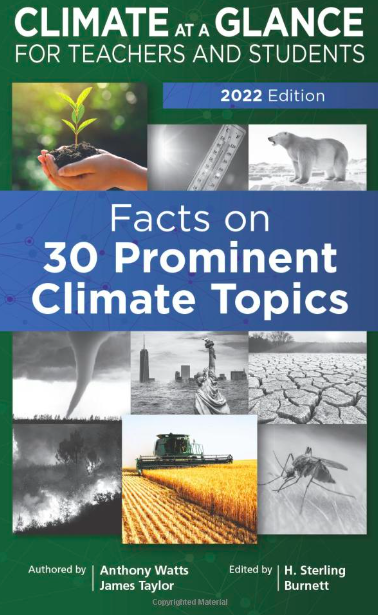
My first choice is Steve Koonin’s Unsettled – already selected and reviewed by several other council members. The fact that Steve could find no scientific paper that predicts climate catastrophe leads me to wonder who are the authoritative scientists that do promote the catastrophic case? Another book (or booklet) is worth a mention because it is targeting into one of the most serious areas of climate misinformation – ie teachers and school children: Climate at a Glance for Teachers and Students. These books illustrate two good paths for tackling “climate catastrophe”. The first via a thorough review of the underlying science and the second by providing real data to dismiss the various exaggerated climate claims and to show that CO2 is both essential and hugely beneficial to human life.
William Kininmonth
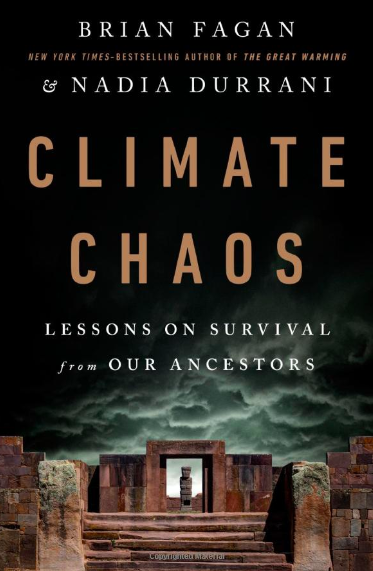
Climate Chaos: Lessons on survival from our ancestors by Brian Fagan and Nadia Durrani published by Public Affairs (2021). Fagan and Durrani link the rise and fall of various regional civilisations over the last 30,000 years to changing local climates. For the tropics and subtropics the important climatic variable is rainfall (droughts and flooding rain) while for middle and high latitudes it is temperature and duration of growing season. This is a salutary lesson for those who ascribe to the anthropogenic global warming climate emergency paradigm – the dangers of climate change do not arise from a linear temperature change. Indeed, past periods of warmth appear to be highly beneficial for humankind. One caution is that Fagan and Durrani close by endorsing the human caused climate emergency paradigm, which is at odds with their historical natural climate variability review! Two books pointing to the detrimental impacts of misguided climate and environmental policies are Michael Shellenberger’s Apocalypse Never: Why environmental alarmism hurts us all published by Harper Collins (2020), and Ian Plimer’s Green Murder: A life sentence of Net Zero with no parole published by Connor Court (2021). Both authors, in different ways, point to the negative impacts on society and the environment from the demonisation of fossil fuel usage.
Prof Ross McKitrick
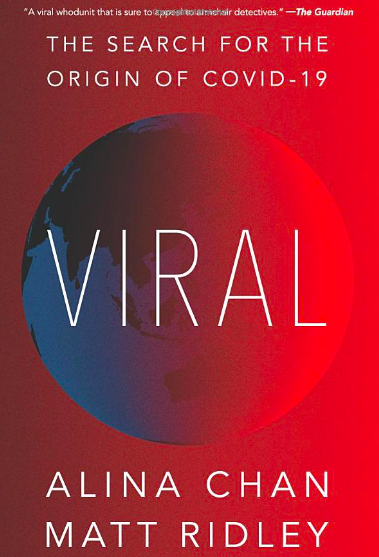
The best 2022 book I read was Alina Chan & Matt Ridley’s Viral: The Search for the Origin of COVID-19. It’s not about climate, it’s about a real emergency, namely the pandemic. The authors do an excellent job of explaining complex and difficult material, and they make the story of the search for the origins of Covid-19 fascinating and compelling. They discuss very honestly the willingness of leading figures in the scientific establishment to subordinate truth-seeking to a political agenda, and the failure of public authorities to conduct investigations in ways that allow us confidence in the validity of their conclusions. So in that sense it’s a close parallel to the climate story.
Sir Ian Byatt
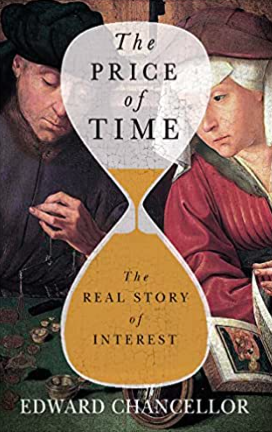
My best book in 2022 is Edward Chancellor’s The Price of Time. It explains the quagmire of ultra-low interest rates. And for global warming books: Rupert Darwall’s The Age of Global Warming is an historical account of the global warming doctrine and brings to the fore many arguments of its proponents which should never be forgotten, and Rupert Darwall’s Green Tyranny: Exposing the totalitarian roots of the climate industrial complex.
Prof John Dewey
My top read was Unsettled by Steven Koonin. It is written in a measured, sensible, style and teases out all the difficulties and inconsistencies in the ACC hypothesis and analyses all the exaggerations and misinterpretations that characterise the path to an exceedingly unlikely climate crisis and catastrophe. Especially, by analysing the statistical history of extreme weather events, he shows that their attribution to man-made climate change is untenable. Koonin is a very distinguished physicist; this book should be read by every climatologist and all those who are concerned about climate change but do not have the science background to decide for themselves. They will find that the science is neither settled nor believed by a consensus. I rarely read fiction, except some of the writings of some climate scientists as reported in the news and broadcast media, but I have just finished reading The Luminaries by Eleanor Catton. The novel is set in the gold district of the west coast of the ‘South Island, New Zealand. It is an extraordinarily complicated story involving a large cast of characters and intrigues beginning with the arrival, in Hokitika, of a man to make his fortune. A very rich man has disappeared, a prostitute has attempted suicide, and a huge amount of cash has been discovered in the house of a town drunk Twelve local men have assembled to discuss these and ther unsolved crimes. As the novel unfolds, there is a complex interweaving pattern of human relationships. I found, after reading a couple of chapters, that I had to start again but this time with an A4 pad on which I recorded every event. Only in this way could I track the developing plot(s). This is a difficult yet entertaining and clever book that unfolds in unexpected ways. I recommend it as a brain-strainer but it really is worth the effort. I bought it during two months geologising in New Zealand several years ago but only got around to reading it this year.
Prof Wade Allison
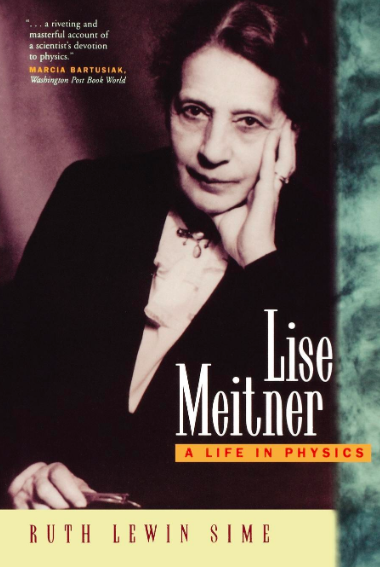
Here is my best book of 2022: Lise Meitner: A life in physics by Ruth Lewin Sime. This biography of the discoverer of nuclear fission spells out what happens to those concerned when energy, humanity and politics collide. Born in Vienna of Jewish extraction she worked in Berlin and made her discovery shortly before the Second World War. After a narrow escape to Sweden, she published her findings. While her German colleague in Berlin received the Nobel Prize that all agree today should have been hers, she later moved to England where she is buried in the quiet country graveyard at St James, Bramley, Hampshire. Her gravestone records “Lise Meitner: a physicist who never lost her humanity”. Although I read it only recently, it is not a new book. Nevertheless it raises questions relevant in today’s world.
Prof Michael Kelly FRS
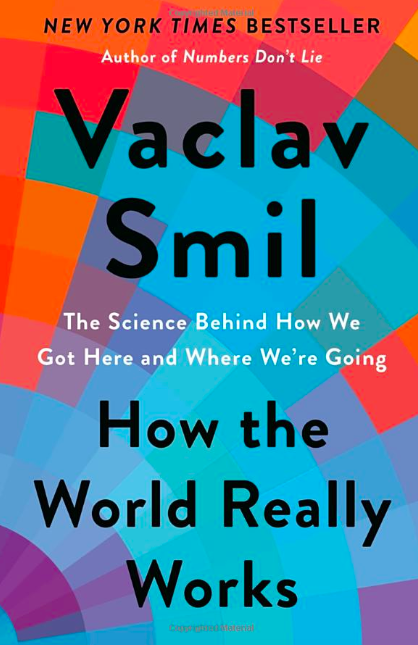
Best book of 2022: How the World Really Works by Vaclav Smil. The wisest words of this must-read book come in the introduction: ‘The gap between wishful thinking and reality is vast, but in a democratic society no contest of ideas and proposals can proceed in rational ways without all sides sharing at least a modicum of relevant information about the real world, rather than trotting out their biases and advancing claims disconnected from physical possibilities.’ It is essential to know how things really are before offering ideas for improvement. It takes almost its weight in crude oil to provide the energy to get any one of a tomato, a loaf of bread or a piece of chicken from a seed/egg to our table. Those who want a future without fossil fuels need to appreciate this perspective, before considering that fossil fuels represent the industrial feedstock for many of the items we use in everyday life from plastics to pharmaceuticals. It is made clear in the closing chapter that the future will be neither nirvana nor hell on earth but a continuation of the best efforts of humanity hindered by obstacles and aided by serendipity.
Prof Gwythian Prins
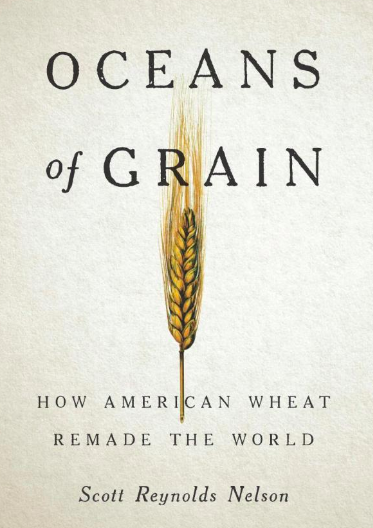
My favourite of ’22 was published almost exactly as Putin invaded Ukraine: Scott Reynolds Nelson, Oceans of Grain: How American Wheat remade the world, Basic Books, February 2022. Timing could not have been more propitious because, despite the title, this is really a book about the centrality of the Ukrainian chernozem – the black soils which are among the most fertile on the planet – from which grain has poured along the Black Paths to the Black Sea coast for export in the ox-carts of the chumaki traders from the fifth century BC to (no longer in ox carts but in rail-cars on the same routes) the present. Nelson has written a biography of wheat and of bread-making (older than writing, older than cities, older than most domestication of animals…), showing how the fate of empires rode in the ox-carts (and plague in the bodies of the traders). This is history written with panache and pace and high originality. His scholarship is protean and Nelson’s scope is dauntless. He leads the reader at a clip from the Greeks to Catherine the Great’s physiocratic experiment of Odessa to the non-political revolutions in technology that you may not have noticed and notable to the nineteenth century American revolution on the prairies that generated the waves of grain that rolled across the Atlantic and then around the world taking over from Ukraine the feeding of growing urban industrial populations. In turn Nelson’s guide is Parvus – Alexander Israel Helphand – a largely forgotten Jewish Odessa grain trader turned millionaire entrepreneur who among other things was responsible for Lenin’s Sealed Train and was Trotsky’s close associate in forming the Red Army. He has a missionary zeal in recovering Parvus to western historical memory as much as he has for promoting literally grounded history in the school of J.C.Scott (The Moral Economy of the Peasant/Against the Grain) and W.H. McNeill (Plagues and Peoples) – the Yale stable from which Nelson himself comes. It is this modern empiricism that I admire and recommend to GWPF readers because it is such a stimulating corrective to the lazy anachronisms and confirmation bias with which we daily contend. This is an historical method which links, soils, seas, weather, microbes and animals to histories of empires, of energy, of technologies, of plagues, of plants and of peoples. As J.C. Scott himself says this book is destined to become an instant classic and I agree. Rice and maize should be so lucky he also says and I also agree. What’s not to like for a community that lives against the grain in today’s culture wars? A rattling good read too.
Bryan Leyland
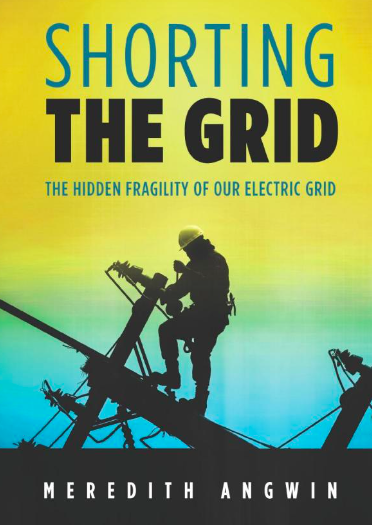
My book of the year is Shorting the Grid by Meredith Angwin. She unravels the tangled trail from a regulated power system where vertically integrated entities were responsible for providing a reliable and economic supply supply to a disaggregated and allegedly market based system that was based on a mistaken belief that electricity was “a commodity like any other” and introducing competitive bids must reduce prices. As she explains it has failed: the market based systems nearly always result in more expensive and less reliable electricity. She describes how a labyrinth of regulations, subsidies and renewable energy obligations have combined to increase the price of power and decrease the reliability of supply. Major factors are the subsidies and mandates for what is fundamentally expensive (once the cost of storage is factored in) renewable energy and the lack of long-term objectives. It is an object lesson in what happens when the management of a complex entity like a power system is handed over to economists, politicians and other people who have no understanding of how the system really operates and exactly what is needed to provide an economic and reliable supply. The book explains the complex issues involved very clearly in language that ordinary people can understand. Although it describes the situation in USA, it is widely applicable to any power system that has adopted an electricity “market” and subsidies for renewable energy. As she makes abundantly clear, it didn’t need to have happened. The book is a must read for anyone who wishes to understand just how we got into this mess.
